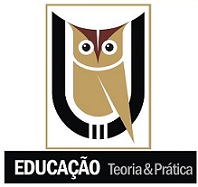THE CARTOON AS AN ACTIVE AND PLAYFUL METHODOLOGY IN THE TEACHING-LEARNING PROCESS IN NURSING
DOI:
https://doi.org/10.18675/1981-8106.vol28.n59.p529-547Keywords:
Desenho animado, Estratégia, Enfermagem, Ensino, Lúdico.Abstract
This article aims to report the experience of the use of play, in this case, the cartoon as a methodological strategy in the course of Bachelor of Nursing in a private higher education institution, in the interior of Ceará. This is of experience report, which narrates the use of cartoon in the discipline of Bases of the Systematization of Nursing Assistance. Initially, searches were made on websites about cartoons that presented health-related issues, with the selection of the character Gaguinho. The episode was presented in the classroom and then the students were stimulated to elaborate, from the situation presented in the drawing, the Nursing diagnoses, subject proposed in the discipline. At the beginning, the students showed resistance to this proposal, however, they embarked on the challenge, managing to establish the diagnoses, including showing the relaxation and interactivity with the teacher and colleagues during the exercise. It is concluded, therefore, that the cartoon can constitute itself as a playful methodological strategy to be used in higher education, so it is necessary that more studies are carried out. Keywords: Cartoon. Strategy. Nursing. Teaching. Playful.Additional Files
Published
How to Cite
Issue
Section
License
Authors who publish in this journal agree to the following terms:
a) Authors assign copyright to the journal, with the work simultaneously licensed under the Creative Commons Attribution License that allows sharing of the work with acknowledgment of authorship and publication in this journal.
b) The policy adopted by the Editorial Committee is to assign copyright only after a period of 30 months from the date of publication of the article. After this time, authors interested in publishing the same text in another work must send a letter to the Editorial Committee requesting the release of the assignment of copyright and wait for a response.
c) This journal provides public access to all its content, since this allows greater visibility and reach of published articles and reviews. For more information on this approach, visit the Public Knowledge Project, a project that developed this system to improve the academic and public quality of research, by distributing OJS as well as other software to support the public access publication system to academic sources. The names and email addresses on this website will be used exclusively for the purposes of the journal and will not be available for other purposes. This journal provides open any other party  This work is licensed under a Creative Commons License
This work is licensed under a Creative Commons License











